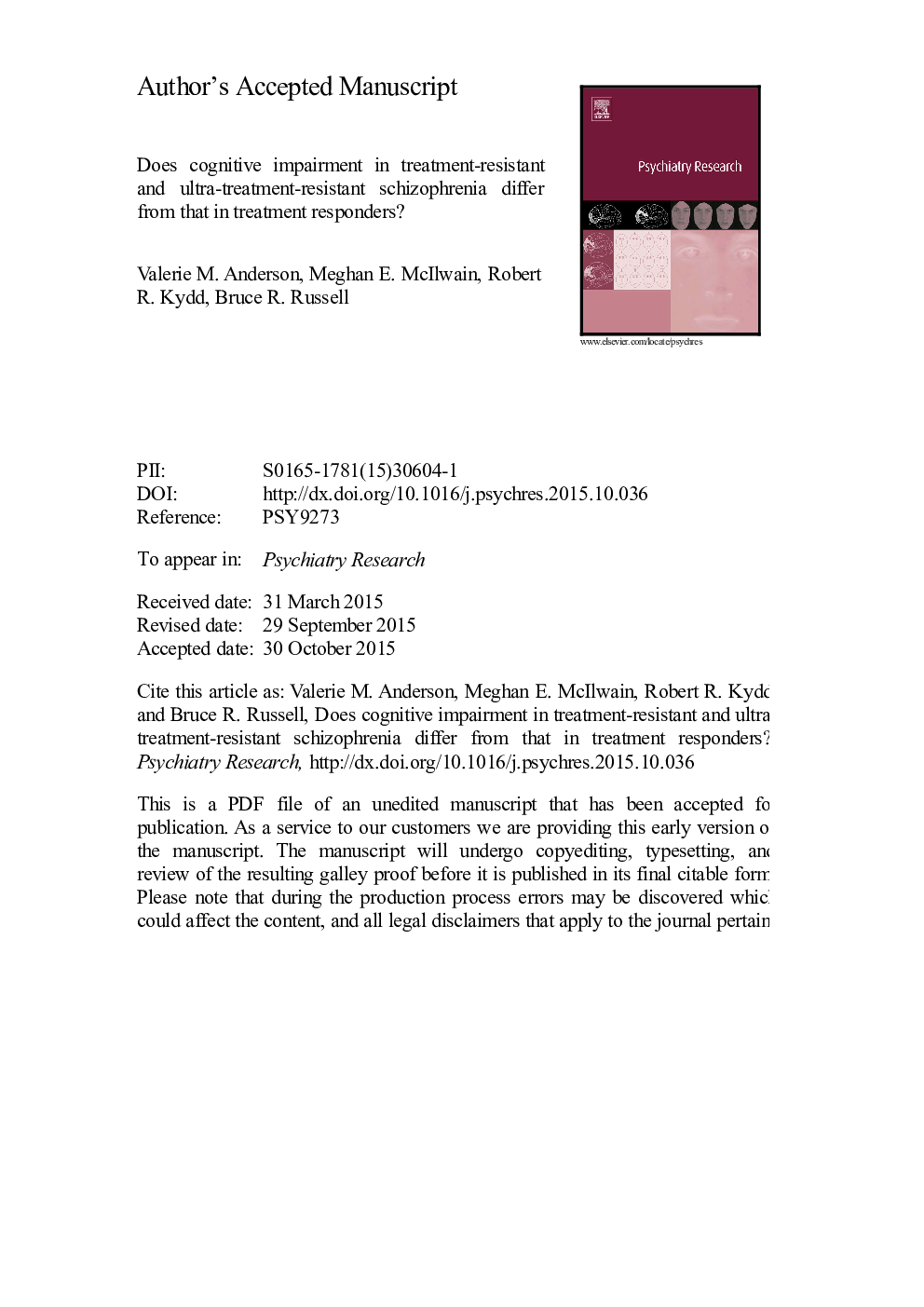| Article ID | Journal | Published Year | Pages | File Type |
|---|---|---|---|---|
| 6813736 | Psychiatry Research | 2015 | 33 Pages |
Abstract
This study aimed to investigate whether cognitive impairment is more pronounced in people with treatment-resistant schizophrenia compared with those who respond well to first-line antipsychotic medication. Fifty-one patients with schizophrenia were assigned to one of three groups dependent on their clinical history: (i) 16 people who had responded well to first-line antipsychotic medication, (ii) 20 people who were treatment-resistant but responding to clozapine monotherapy, (iii) 15 people who were ultra-treatment-resistant/clozapine-resistant but responding to antipsychotic polypharmacy. Twenty-two controls were also recruited. Groups were matched for age, sex, disease duration and psychopathology. All participants undertook a computerised battery of neuropsychological tests that assessed multiple cognitive domains. Raw data were converted to z-scores, and test performance was compared between groups. People with schizophrenia performed significantly worse than controls in the majority of neuropsychological tests, with verbal memory, sustained attention, and sensorimotor the most commonly impaired domains. No significant differences in performance between people deemed to be treatment-resistant or ultra-treatment-resistant, and those who responded well to first-line antipsychotic medication were observed. There was no significant relationship between antipsychotic dose and scores on any of the neuropsychological tests. Cognitive impairment is a central feature of schizophrenia, but our results suggest that treatment-resistance may not be associated with more severe deficits.
Related Topics
Life Sciences
Neuroscience
Biological Psychiatry
Authors
Valerie M. Anderson, Meghan E. McIlwain, Robert R. Kydd, Bruce R. Russell,
